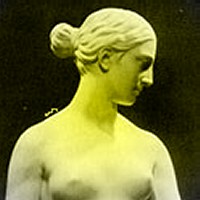License $0.00
Free download
Creative Commons license
Commercial uses of this track are NOT allowed.
Adaptations of this track are NOT allowed to be shared.
You must attribute the work in the manner specified by the artist.

Techno, Ambient, New Age, Chill
Not much uploading for the moment. I'm currently building some keyboard skills -- adding new tools. As the snow starts to clear up, I'll get out and do some jamming and put together some more tracks.
Song Info
Genre
Charts
#10,671 today
Peak #163
#418 in subgenre
Peak #11
Author
dt king
Uploaded
July 30, 2004
Track Files
MP3
MP3 2.8 MB • 128 kbps • 3:05
Story behind the song
From: http://ingeb.org/songs/cillchai.html
The Castle of Cill Chais (Kilcash) was the chief seat of one of the branches of the Butler family until well into the eighteenth century. It is situated at the foot of Sliabh na mBan, not far from Kilsheelan, near Clonmel, County Tipperary.
Today the popular Irish song Cill Chaise (Kilcash) lives, still mourning the death and the time of Lady Iveagh, while the memory of Kilcash history and monuments has faded.
Irish school texts and other sources attributed the poem to Father John Lane a Parish Priest of Carrick-on-Suir who was educated for the priesthood by Lady Iveagh, the deagh-bhean (good lady) of the song. This credit appears undeserved, as Fr Lane died in 1776 and the sale of its timber was not advertised in the local papers until 1797. The poet Pádraig Ó Néill has recently been suggested as possible author, but that is also arguable.
The air for Kilcash appears to be that of Bliadhin 'sa taca so phós mé (This time twelve months I married), collected by George Petrie in Clare and published in 1855.
Cill Chaise seems to have been composed in the early 1800s after the timber sale. The earliest manuscript copies of the text did not appear till forty years later.
Lyrics
Créad a dhéanfaimid feasta gan adhmad,
tá deireadh na gcoillte ar lár;
níl trácht ar Chill Chais ná a teaghlach,
is ní bainfear a cling go bráth;
an áit úd ina gcónaíodh an deighbhean
a fuair gradam is meidhir tar mhná,
bhíodh iarlaí ag tarraing tar toinn ann,
is an tAifreann binn á rá.
Is é mo chreach fhada is mo léan goirt
do gheataí breá néata ar lár,
an avenue ghreanta faoi shaothar
is gan foscadh ar aon taobh den walk,
an chúirt bhreá a sileadh an braon di
is an ghasra shéimh go tláith,
is in leabhar na marbh do léitear
an tEaspag is Lady Iveagh!
Ní chluinim fuaim lacha ná gé ann
ná fiolair ag déanadh aeir cois cuain,
ná fiú na mbeacha chum saothair
a thabharfadh mil agus céir don tslua,
níl ceol binn milis na n-éan ann
le hamharc an lae a dhul uainn,
ná an chuaichín i mbarra na ngéag ann,
- ó, 'sí a chuirfeadh an saol chum suain!
Nuair a thigeann na poic faoi na sléibhte
is an gunna lena dtaobh is an líon
féachann siad anuas le léan ar
an mbaile a fuair sway in gach tír;
an fhaiche bhreá aoibhinn ina réabacha
is gan foscadh ar aon taobh ón tsín,
páirc an phaddock ina dairy
mar a mbíodh an eilit ag déanadh a scíth'!
Tá ceo ag titim ar chraobhaibh ann
ná glanann le grian ná lá,
tá smúit ag titim ón spéir ann,
is a cuid uisce go léir ag trá;
níl coll, níl cuileann, níl caora ann,
ach clocha agus maolchlocháin;
páirc na foraoise gan chraobh ann,
is d'imigh an game chum fáin!
Anois mar bharr ar gach mí-ghreann
chuaigh prionsa na nGael tar sáil,
anonn le hainnir na míne
fuair gairm sa bhFrainc is sa Spáinn -
anois tá a cuallacht á caoineadh,
gheibheadh airgead buí agus bán,
'sí ná tógfadh seilbh na ndaoine,
acht caraid na bhfíorbhochtán.
Aitím ar Mhuire is ar Íosa
go dtaga sí arís chughainn slán,
go mbeidh rincí fada ag gabháil timpeall,
ceol veidhlín is tinte cnámh,
go dtógfar an baile seo ár sinsear
Cill Chais bhreá arís go hard,
is go brách nó go dtiocfaidh an díleann
ní fheicfear í arís ar lár!
--------------------------------------------------------------------------------
tr. Thomas Kinsella
Now what will we do for timber,
with the last of the woods laid low?
There's no talk of Cill Chais or its household
and its bell will be struck no more.
That dwelling where lived the good lady
most honoured and joyous of women
--- earls made their way over wave there
and the sweet Mass once was said.
Ducks' voices nor geese do I hear there,
nor the eagle's cry over the bay,
nor even the bees at their labour
bringing honey and wax to us all.
No birdsong there, sweet and delightful,
as we watch the sun go down,
nor cuckoo on top of the branches
settling the world to rest.
A mist on the boughs is descending
neither daylight nor sun can clear.
A stain from the sky is descending
and the waters receding away.
No hazel nor holly nor berry
but boulders and bare stone heaps,
not a branch in our neighbourly haggard,
and the game all scattered and gone.
Then a climax to all of our misery:
the prince of the Gael is abroad
oversea with that maiden of mildness
who found honour in France and Spain.
Her company now must lament her,
who would give yellow money and white
--- she who'd never take land from the people
but was friend to the truly poor.
I call upon Mary and Jesus
to send her safe home again:
dances we'll have in long circles
and bone-fires and violin music;
that Cill Chais, the townland of our fathers,
will rise handsome on high once more
and till doom --- or the Deluge returns ---
we'll see it no more laid low.
--------------------------------------------------------------------------------
From "Londubh an Chairn"
Being Songs of the Irish Gaels, London, 1927
1. Where now is the sheltering wildwood
That we in our youth have known?
Oh gone are the groves of our childhood
And even the birds are flown.
It was there that dwelt the good lady
There the sweet bell was daily rung,
Great Earls came ove
On
Playlists
